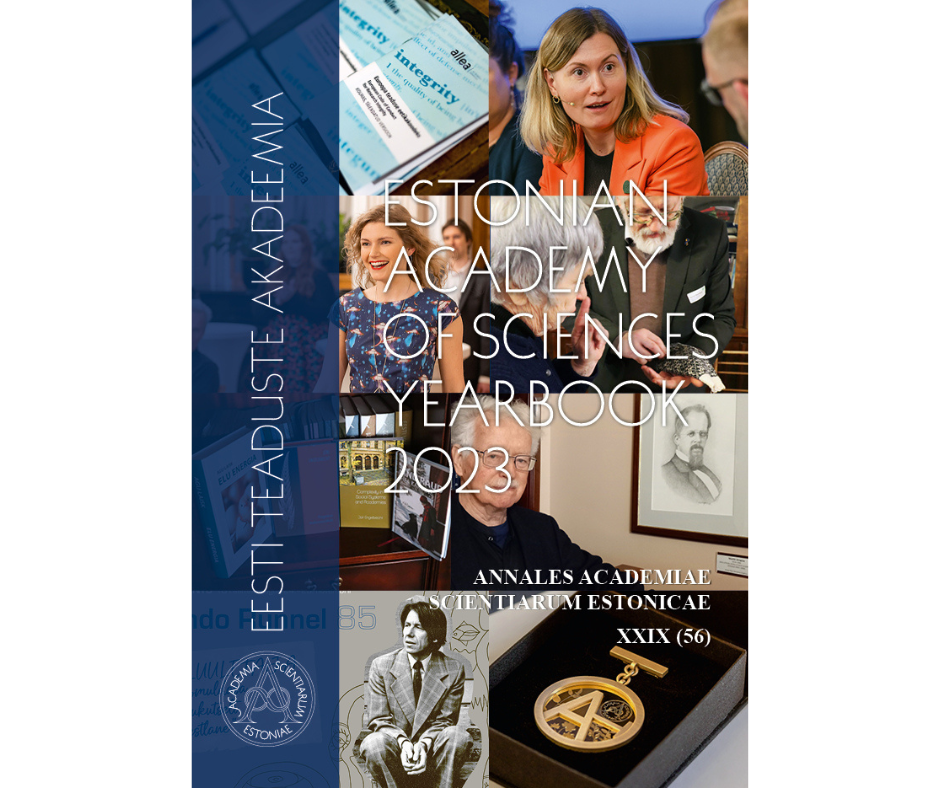The 2023 Yearbook of the Estonian Academy of Sciences is now available on our website.
The meaning and context of the European Code of Conduct for Research Integrity, whose revised edition was published last year, is explained by Krista Varantola, Professor and Rector Emerita of the University of Tampere, member of the Council of Finnish Academies, and Chair of the Drafting Group of the ALLEA (All European Academies) Permanent Working Group on Science and Ethics.
Academy member Jüri Engelbrecht takes the reader on a journey through the unique book series The Story of Estonian Thought (Eesti mõttelugu), initiated 30 years ago under the leadership of Academy member Hando Runnel. Jüri Engelbrecht acknowledges that there is no equal to this series in the world. Academy member Dan Bogdanov provides a brief overview of the ambitious beginnings of the work of the Standing Committee on Cyber Security of the Estonian Academy of Sciences.
Academy member Anu Realo writes about trust, trustworthiness and responsibility, and Academy member Veiko Uri about the carbon cycle in managed Estonian forest ecosystems.
Toomas Vaimann, President of the Estonian Young Academy of Sciences (EYAS), and Erik Abner, Head of Communications, share their impressions of the closing event of the International Year of Basic Sciences, held in Geneva, Switzerland at the end of last year.
Research professors of the Estonian Academy of Sciences present their work, covering topics ranging from the Arctic and Russia to the language attitudes of Russian-speaking parents in the transition process to Estonian language-based studies.
Tarmo Soomere, President of the Estonian Academy of Sciences, writes about science diplomacy and highlights that science is a massive channel of soft power that is not only capable to but is changing the world. This potential of science is totally underexploited.
Kati Lindström, member of the Estonian Polar Research Committee of the Academy, explains why Estonia, having already joined the Antarctic Treaty in 2001, should also join the Madrid Protocol.
Kerdi Raud, Executive Officer of the Academy's Constitutional Law Foundation, and Heiki Loot, Chairman of the Council, give an overview of the five years of the foundation's activities.
In addition, the book includes excerpts of key messages from the Academy members and interviews with newly elected Academy members. The reader will find an overview of the most important international cooperation activities of the Academy in 2023, as well as of competitions and recognitions. In the section ‘Bright moments,’ there is a pictorial overview of the most important activities of the Under and Tuglas Literature Centre of the Estonian Academy of Sciences and the institutions and organisations associated with the Academy.
